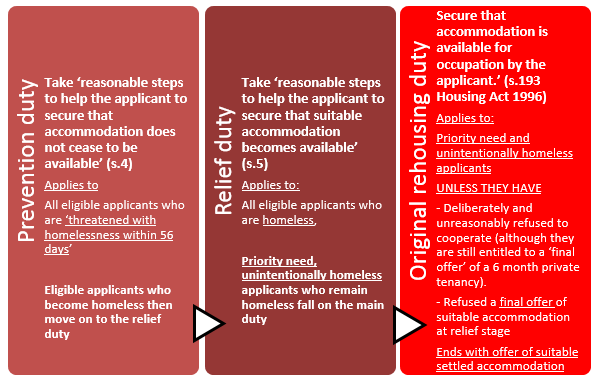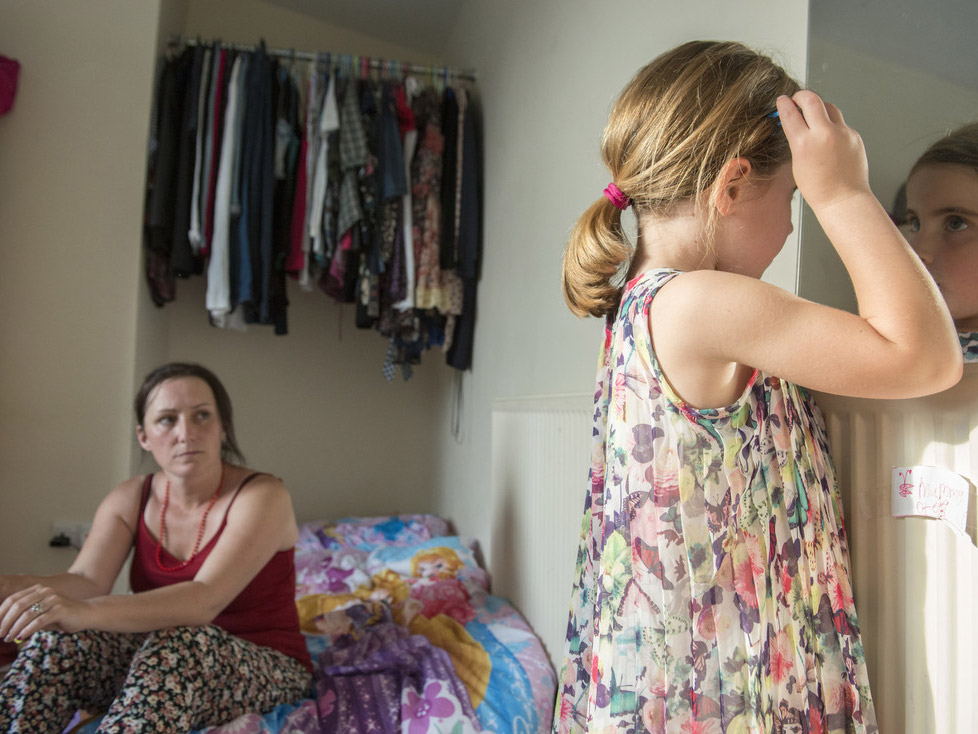From today, councils must change the way they help homeless people, as the Homelessness Reduction Act comes into force.
The new legislation is certainly needed. Homelessness in England has reached crisis point, as the tragic reports of people dying on our streets during the recent cold weather have brought into sharp focus.
Few of us can say we haven’t noticed an increase in men and women bedding down. Street homelessness has more than doubled in five years: last autumn over 4,700 people were counted on a single night.
And, as last week’s government statistics revealed, statutory homelessness has risen by 8% in the past five years: in 2017, councils rehoused nearly 58,000 households (57,890) in priority need. And the number of households in temporary accommodation, many with children, is up nearly 49% since 2012.
What the new legislation means
It effectively bolts two new duties onto the existing rehousing duty councils have had for decades:

Unlike the existing rehousing duty, which only applies to applicants in ‘priority need’ (those with dependent children or who are more vulnerable) and unintentionally homeless, these new duties to prevent and relieve homelessness apply to all those who are homeless and threatened with homelessness (provided they are eligible).
This means we should see an end to people being turned away from council homelessness services because they are deemed ‘not vulnerable enough’ or to have caused their own homelessness. Councils are required to help them to keep or find a home.
There’s also a fresh emphasis on the role of councils in preventing homelessness. Anyone who is eligible and threatened with homelessness within 56 days is entitled to help to save their home and – where this can’t be done – to find a suitable alternative to allow them to make a planned move before they are evicted.
This should herald an end to the practice of families served with a notice by the landlord being told to come back when they have an eviction date, which loses precious time to find another home.
A final part of the legislation, which comes into effect in October, requires other public bodies (such as hospitals and prisons) to work with local housing authorities to help homeless people in the course of their work.
For these reasons, and more, we support the legislation.
Will the legislation reduce growing homelessness?
The government has a target to halve rough sleeping by 2022 and eliminate it by 2027. But legislation alone isn’t enough to reduce homelessness in all its forms.
Last week’s announcements of a new initiative and funding to reduce rough sleeping and a scrapping of the policy to exclude people aged 18-21 from the housing costs in Universal Credit, are welcome and certainly have the potential to help prevent and reduce street homelessness.
But we must see more action to tackle the root causes of homelessness in all its forms. Over 1.5m families now rent privately. Housing benefit is a vital tool in preventing homelessness, allowing those on low incomes to afford market rents, and avoid arrears, repossession and homelessness. But our research shows that by 2019/20, four fifths (83%) of England will be unaffordable to claimants of local housing allowance (LHA).
Last autumn, the Government responded to our campaigning on this, announcing an increase to the Targeted Affordability Fund. This will help in some areas, but in others shortfalls are already so large that it is impossible for families to bridge the gap.
But if the government is serious about reducing homelessness, in the short-term it must ensure LHA is fit for purpose and ensure that the rates reflect local rents once more.
And in the long-term, we must provide an alternative to the market for those who struggle to afford it, by building a new generation of genuinely affordable homes to rent.
Read our new briefing for further information.

